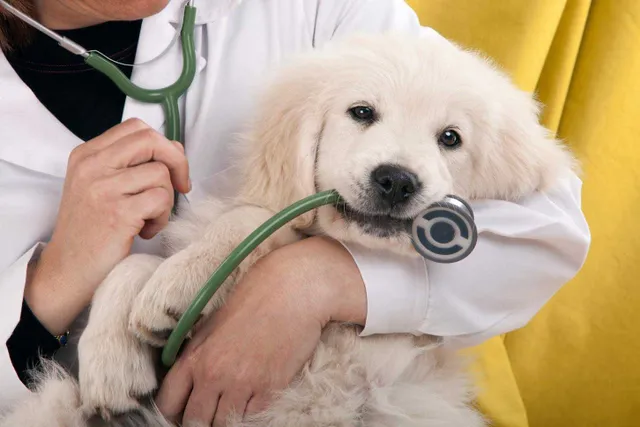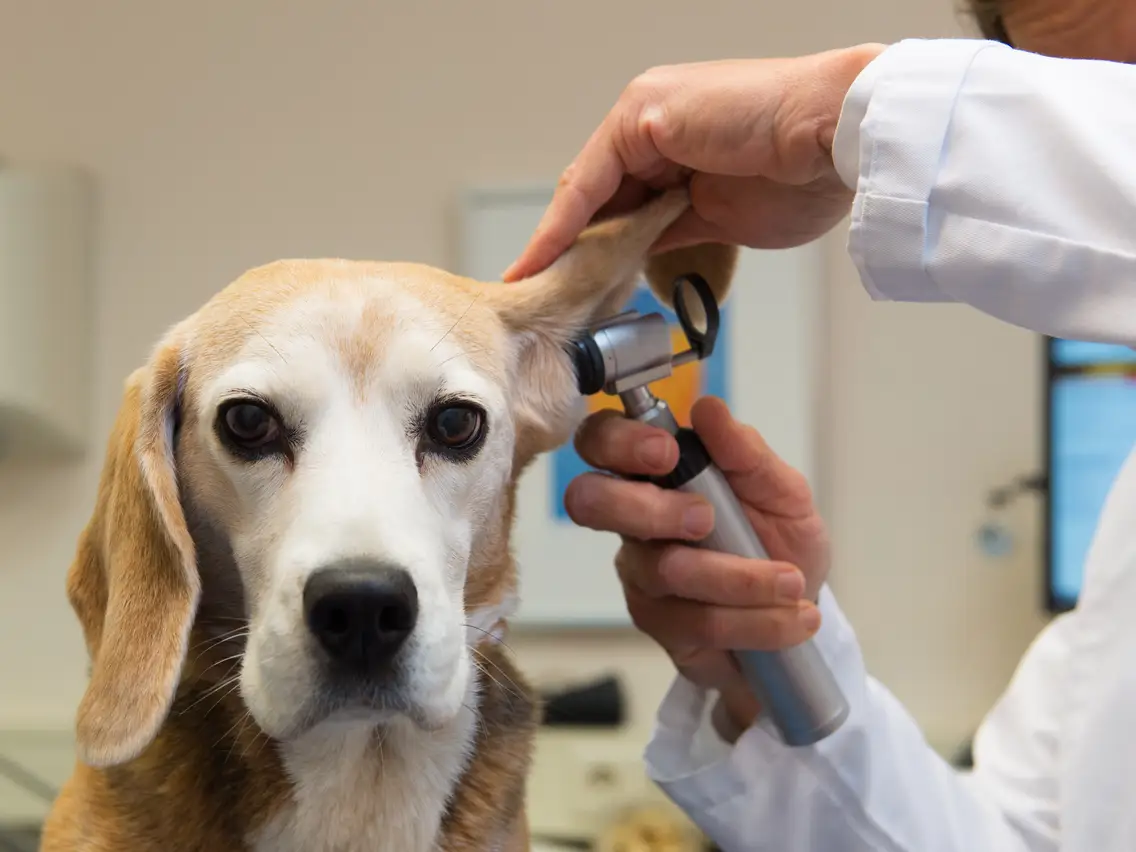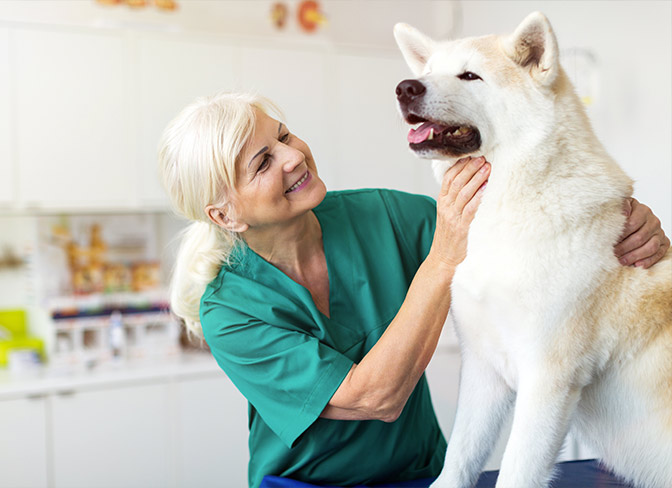
How Often Should I Take My Dog to the Vet?
2022-12-10 22:00
How Often Should I Take My Dog to the Vet?
We all want our dogs to be happy, healthy and live a long life. So instead of rushing to the veterinarian when your pet shows obvious signs of illness or injury, it's better to be proactive with preventive care.
Dogs are experts at masking pain, and a timely diagnosis can prevent unnecessary suffering. Also, early treatment is often cheaper, more complicated, and more effective than if you catch the problem later. That's why veterinarians recommend getting into the habit of scheduling regular health checkups.
How often you take your dog to the vet depends on their age, breed, lifestyle, and overall health, but with most dogs, there are some guidelines you can follow.

Puppy Checkups
During the first few months of bringing them home, you and your puppy will get to know the veterinarian very well.
AKC Chief Veterinary Officer Dr. Jerry Klein recommends that veterinarians should evaluate each newly acquired puppy. Your veterinarian may request a stool sample to rule out parasites, and they'll listen to the heart and lungs and check the eyes, teeth and ears, he explains.
Puppy vaccines will account for the majority of their vet visits. "Typically, puppies that are purchased, usually around 8 to 12 weeks old, already have their initial vaccinations," says Dr. Klein. Your veterinarian will need to see the appropriate documentation from the breeder or rescue shelter, Dr. Klein explains, puppies receive additional supplemental vaccines (usually twice) every three to four weeks until they are about 16 to 20 weeks old age.
The standard DHPP (or DAPP) core vaccine and its booster protect against the following five unique infectious diseases:
Canine distemper
Hepatitis
Kennel Cough
Parvovirus
Parainfluenza
During these visits, your vet will monitor how your puppy is growing, you should discuss their diet, dental health, and flea and tick preventatives, and address any other concerns you might have. You'll also likely chat about the option of spaying or neutering your dog when they’re between six and 18 months old.
Depending on your location and lifestyle, your vet may recommend administering other non-core vaccines during this time as well. These might include shots for leptospirosis and Lyme disease. However, studies show that the efficacy of the Borrelia burgdorferi (Lyme) vaccine is highly variable, and Dr. Klein suggests you might choose not to do this unless you live in a heavily endemic area with ticks and Lyme disease.
These regular trips to the vet are an excellent opportunity to help build positive associations with the clinic and its staff. To make your puppy's first vet visit a success, come armed with lots of treats, take things slow, and research for clinics that incorporates fear-free practices into their exams.

Adult Dog Checkups
Once your puppy is mature, you usually won't need to visit the vet as often. Adult dogs usually only need DHPP and rabies shots every one to three years. The timing varies depending on where you live, the type of vaccine, and whether you have a titer test, which checks the amount of antibodies from a previous vaccine to see if it is still providing an appropriate level of immunity.
However, even if your dog doesn't require regular injections, it's still wise to schedule an annual health checkup.
The two most preventable health problems in dogs are obesity and dental disease, both of which can be gradual, hidden problems. When you live with animals on a daily basis, you often don't notice small changes in your body weight, and if left unchecked, weight gain can lead to serious diseases such as osteoarthritis, diabetes and heart disease. Also, most owners don't really look closely at their dog's mouth unless the dog brushes their teeth.
Among other things, as part of the annual head-to-tail physical, your veterinarian will monitor weight changes, examine your dog's teeth, gums, eyes and ears, watch for abnormal growths, and listen for heart and lung sounds. They may also do some blood tests and ask for a stool sample ahead of time.
A veterinary health checkup is like a "litmus test," and it's more important than dog owners often think. If you have any concerns or questions, please jot them down in advance so you don't forget to bring them up during your visit.

Senior Dog Checkups
As your dog gets older, just like humans, they are prone to more health problems. That's why biannual health checks are beneficial for older dogs. When your dog hits this mark depends on their breed type, size, and overall lifestyle, but it's generally accepted that the older your dog, the earlier it starts.
For example, a seven-year-old Papillon is different from a seven-year-old Irish Wolfhound, and toy breeds are checked twice a year at 7 to 9 years old. Giant breeds age faster and generally don't live as long as smaller dogs. He recommends taking them to the vet two years earlier than smaller dogs. However, aging in dogs is a gradual, individual process, so pay close attention to any changes. The more information you can provide your veterinarian during these health checks, the better.
For some older dogs, your veterinarian is more likely to recommend blood tests and x-rays to evaluate the Your pet's position at baseline.
X-rays can help detect diseases that are more common in older dogs, such as cancer or arthritis. Blood work can give us a good look at the internal health of an organ. We can see if there are any kidney or liver problems earlier. The veterinarian may also discuss dietary changes and review pain management for conditions such as arthritis.
As older dogs approach the end of their lives, they often need additional visits to the veterinarian every six months. The type and dosage of pain medications need to be checked more frequently to help maintain quality of life rather than quantity of life. Your veterinarian can also support you with more objectivity when making difficult end-of-life decisions.
Still, Dr. McVety said, "a significant percentage of clients who come to us for euthanasia have not been to a veterinarian in the six to 12 months prior to seeing us."
For some owners, it may be because they are grappling with tough decisions ahead. For others, it's because they're worried their dog might be getting invasive and expensive treatments, and they just want them to be comfortable while they're away.
Don't Just Stick to the Schedule
Even if your dog has no obvious illnesses or injuries, if you notice small changes that cause concern, don't wait until your next annual health checkup. The signs of chronic pain can be subtle, and if you notice that your dog isn't as smart as usual, isn't eating as much, drinking more than usual, or just not behaving as usual, don't be afraid to make an appointment with your veterinarian.
When you feel something is wrong with your pet, be bold and bring your thoughts to the veterinarian, as this may be a very apt observation. So, it's important to stay on top of things and not just stick to the schedule.
Get the latest price? We'll respond as soon as possible(within 12 hours)















